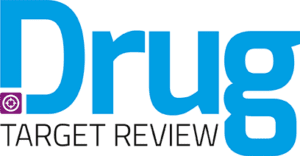
Vaccines, Antibodies and Drug Libraries. The Possible COVID-19 Treatments Researchers Are Excited About
At GigaGen, a San Francisco-based biotech startup founded by Stanford University professor Dr. Everett Meyer, scientists are identifying the right antibodies from recovered COVID-19 patients and hoping to use them as a template for synthesizing new ones, in a more consistent and efficient way so a handful of donors could potentially produce enough antibodies to treat millions of patients. “What GigaGen’s technology does is almost Xerox copy a big swath of the human repertoire of antibodies, and then takes those copies and grows it in cells [in the lab] to manufacture more antibodies outside of the human body,” says Meyer.
Gates, GV chip into $45M round for CNS biotech Cerevance
Four months after inking its first Big Pharma partnership, Cerevance is topping up its coffers with a $45 million raise. The proceeds will push the company’s lead Parkinson’s disease program through phase 2 and move several earlier-stage prospects into the clinic. The funding comes from GV, Bill Gates and Foresite Capital, which joined the Dementia Discovery Fund and Cerevance’s founding investors, Takeda Ventures and Lightstone Ventures, in the series B. The company decided to close the round in light of uncertainty around the COVID-19 pandemic, but it could do a second close to reel in another $15 million, CEO Brad Margus told FierceBiotech.

Coronavirus Survivors Needed: New Orleans Doctor is collecting blood samples from survivors to make treatment.
Research is critical during this pandemic. With so much unknown about the coronavirus, doctors and scientists are exploring new methods to finding a treatment. A New Orleans doctor is collecting blood samples from local survivors of Covid-19. The blood samples will help make a new kind of treatment for the masses.

Coronavirus In Minnesota: HealthPartners Begins Clinical Trial For Drug To Treat COVID-19 Pneumonia Patients
HealthPartners is now testing a drug which could treat severe COVID-19 pneumonia patients. The drug – called CM4620-IE – received fast-track approval from the FDA earlier this month, allowing HealthPartners to begin clinical trials.

A new generation of antibody-drug conjugates for cancer patients
Scientists at Immunomedics have similarly loaded their ADC IMMU-132 (sacituzumab govitecan) with about eight SN-38 molecules in hopes of killing tumor cells via the bystander effect. After an initial rejection, IMMU-132 was resubmitted to the FDA for approval as a third-line treatment for late-stage, metastatic triple-negative breast cancer late last year.
CalciMedica moves inflammation-targeting COVID-19 drug into phase 2
As the number of COVID-19 cases rises, so does the demand for critical medical supplies, leading governments and companies to ramp up the production of new ventilators and the FDA to authorize the use of other devices, such as CPAP machines, to fill the gap. Others, like CalciMedica, are looking for a drug solution to intervene before a patient will need a ventilator.

Refreshing how we approach neuroscience with a novel screening technology
“We need to have a more innovative approach to neuroscience; the pharmaceutical industry has been fixated too long on a handful of targets for serious neurodegenerative diseases and psychiatric disorders, we now need to push past the investment risks and pursue novel approaches to treating these conditions,” according to Brad Margus, Chief Executive Officer (CEO) of Cerevance.
‘A form of a robotic microscope’: Idaho physician uses exoscope to perform surgeries on patients
By the time Paul Huling needed surgery last fall, he couldn’t use his left arm. Huling first noticed a problem a few weeks before when he woke up with what felt like a stiff, sore neck. Soon, pain and tingling progressed. It started extending from his neck into his shoulder, then spreading down the limb. The discomfort became so intense, he couldn’t sleep.
